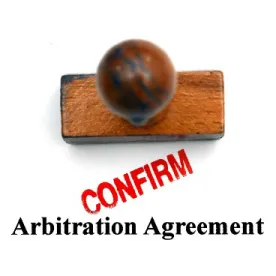The Federal Arbitration Act (FAA) endorses and encourages arbitration as a speedier and less costly dispute resolution alternative to litigation. In recent years, however, companies have become increasingly concerned that arbitration is becoming too much like litigation and even an arbitration victory is only the initial round of a long fight that often spills over into the courts and drags on for years. Two recent court decisions, however, will help restore the promise of arbitration by helping winners of arbitrations defeat attempts to bring satellite court litigation and lay the groundwork for potential sanctions for frivolous litigation.
In NTCH-WA v. ZTE Corp., 921 F.3d 1175 (9th Cir. 2019), the Ninth Circuit decided an issue of first impression, concluding that in a diversity jurisdiction case, the law of the state where the award was confirmed would govern the question of the extent to which the arbitration award would preclude future claims. Accordingly, when an arbitration between the plaintiff and defendant’s subsidiary took place in Florida and was confirmed in the Middle District of Florida, Florida state law governed, and the Washington-state plaintiff could not argue, that Washington law would permit related claims to be litigated in a subsequent lawsuit against the parent company.
A few months later, the Eastern District of Missouri adopted the Ninth Circuit’s reasoning and also granted grant summary judgment to the parent on the grounds of claim preclusion (res judicata) based upon its subsidiary’s prior arbitration award against the Missouri plaintiff. Daredevil, Inc. v. ZTE Corp., No. 4:12-CV-01166-RWS (E.D. Mo. Nov. 26, 2019). Like the Ninth Circuit, the Missouri court held that the question of preclusion was governed by the law of the place of the arbitration and in a 17-page opinion strongly rejected as flatly contradicted by the record all arguments that claims related to the arbitration could proceed in a subsequent lawsuit against the parent company.
The NTCH-WA and Daredevil decisions also clarified several additional points for parties preparing arbitration agreements or considering submission of disputes to arbitration:
-
The law of the state where the arbitration took place determines the preclusive affect of the arbitration award in a subsequent proceeding, regardless of the choice-of-law provision in the contract;
-
For preclusion purposes, parent corporations are considered to be in privity with their subsidiaries, even if the companies operate independently and would not be considered alter egos or agents of each other. It is functionally as if the parent had been a party to the subsidiary’s arbitration proceeding; and
-
The test for whether there is an identity of causes of action between an arbitration and a subsequent proceeding rests upon a comparison of the facts constituting the underlying transaction; differing legal claims against affiliated parties do not matter for preclusion purposes.
As a result, subsidiaries entering into arbitration agreements are well-advised to expressly disclaim any obligations on the part of a parent or affiliate to perform under the contract.
The NTCH-WA and Daredevil decisions remind practitioners once again that the road to a successful conclusion of an arbitrable dispute begins with a well-thought-out arbitration agreement. Polsinelli attorneys assist clients worldwide in identifying and minimizing risks in their arbitration agreements and resolving disputes when they arise.




 />i
/>i
